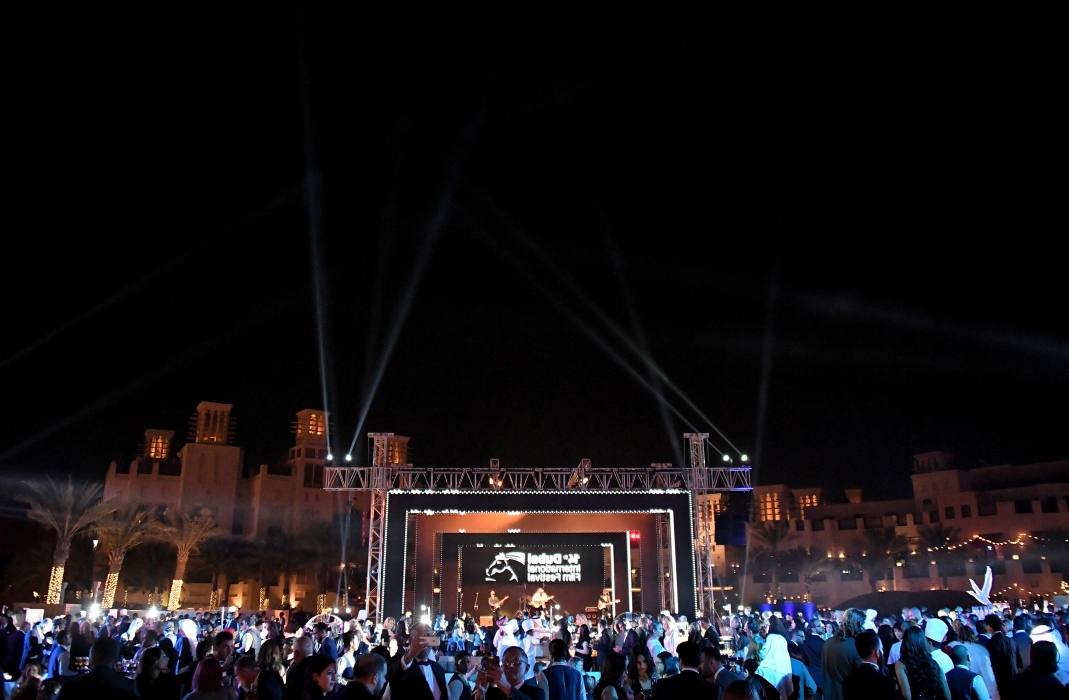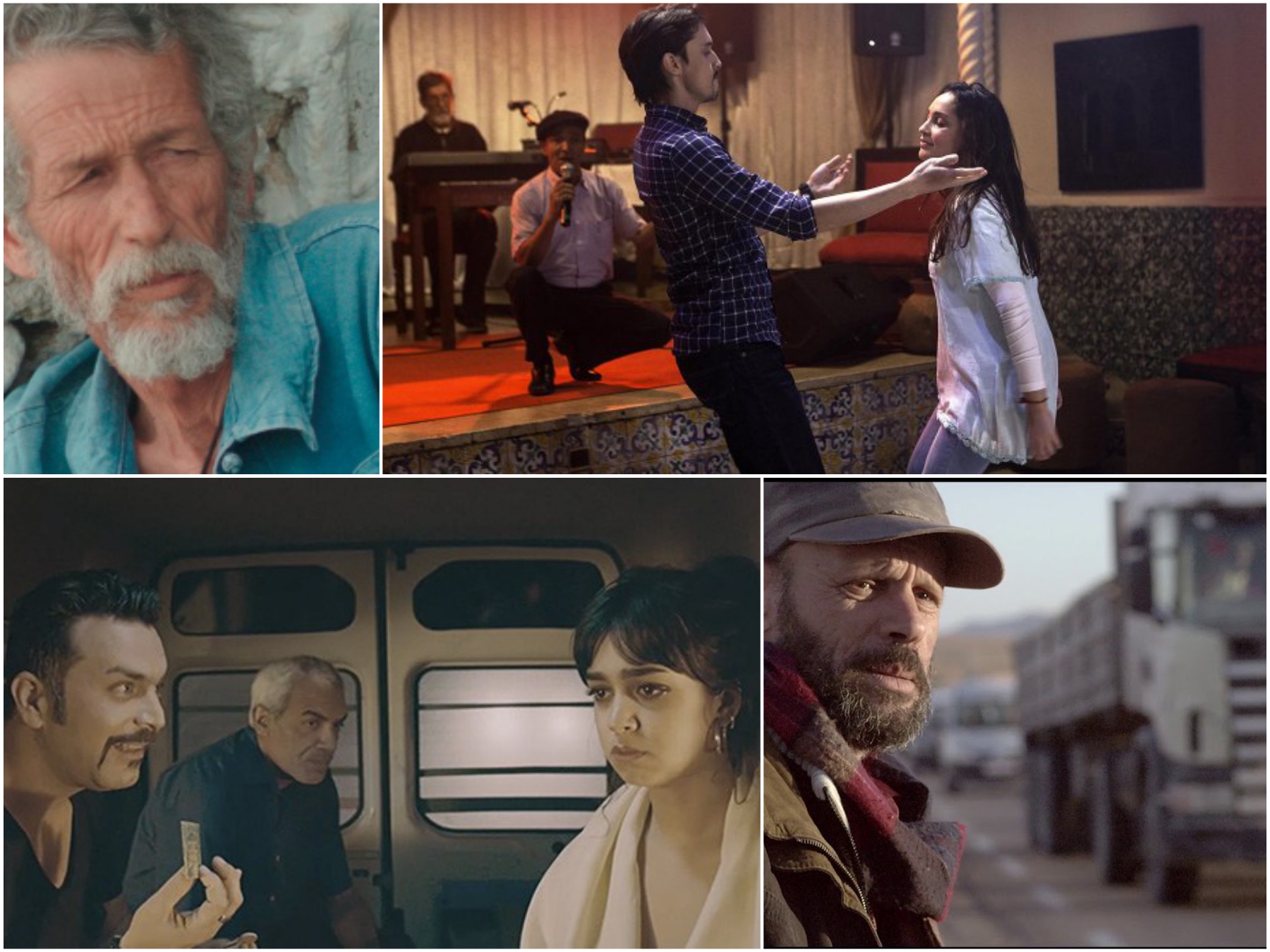
- Festivals
A New Crop of Arab Cinema Shines at the 2017 Dubai Film Festival
The westernization of this commercial middle-eastern hotbed hits you at first sight. It’s as if the masterminds behind the extremely rapid growth of the city-state of Dubai not only decide to create it ex-nihilo but also prescribed exactly how they wanted it to be: A place where every possible dream of luxury and good life can come true. Just like a gang of American men who were united by a wild dream came to a place they called Hollywood, I picture a bunch of Emirati leaders in their spotless white garb gathering to make up their mind on how to cultivate the only art, it seems, that will grow in the desert: film.
The Dubai International Film Festival (DIFF), held this year from December 6-13, extends over a large area that houses Jumeirah Mina A’ Salam Hotel overlooking the Persian Gulf, and Souk Madinat – the modern market that was built in Arabic style as a labyrinthine arcade of interior and exterior spaces, restaurants, bars, tourist shops, movie theaters and of course Jamba Juice, Cinnabon and Seattle Coffee. Red carpets surround the Festival headquarters next to shallow canals traveled by replicas of the traditional boat, the ‘abra’, full of tourists of all ethnicities. Gala events and lavish parties end the days at various impressive venues when the night sky glistens with the multicolored lights of Burj Al Arab Hotel and Skyline Dubai, crisscrossing beams and lit garlands outlining the Souk’s terraces. The ample halls of DIFF’s headquarters are partitioned with booths by local and international technology companies, a Virtual Reality section, a comfortable lounge and several offices for the Festival’s staff. At the Emirates Mall, where most of the screenings take place, the first impression is jarring: If it weren’t for the traditionally dressed Arabian men-in-white and women-in-black, and the many Asian faces, you could easily forget yourself and think you are in, say, Dallas. The popcorn and ticket check lines are very much like at AMC Theaters. Nevertheless, “bigger is better” applies here to a degree that even we who live in Los Angeles are not familiar with. The surrounding restaurants and stores are oversized while the twin multiplexes host about 10 theaters each. Huge digital billboards announce the films playing and the Festival’s trailers.
But when the lights go down, you suddenly find yourself in an entirely different world, especially if you, like me, steer away from the western programs and focus on the Arabic-language films. Whether we know it or not, we have been influenced by the contentious news that comes out of the Middle East and the Muslim world. But when you watch these simple, slice-of-life stories, another reality is revealed, one that is filled with strife yet is also imbued with a morality that seems either foreign or long-past in the West. In these films, relationships are not incidental to the plot but are given the whole screen-time. Sex, violence or danger are mostly absent. Instead, the filmmakers delve into the hearts and souls of their characters who are all connected by the need to cope with the rapidly changing conditions of their respective societies.

Clockwise from top: Until the End of Time, Until the Birds Return, Benzine and Beauty and the Dogs.
courtesy DIFF
Until The Birds Return by Karim Moussaoui is a modern-day Algerian triptych about the secret lives of three unrelated characters: An older man who becomes witness to a crime, a young woman who falls in love with a young man on the way to her arranged marriage, and a doctor who is asked by a woman to acknowledge her illegitimate child. The three stories connect only loosely when the camera suddenly abandons the protagonist and radically changes direction. The fourth time there is such a change of direction, and the camera begins to follow a new hero, the film ends, powerfully making its point: Every person, rich or poor, young or old, lives by a secret passion, a secret story; whether with a resolution or an open-ending, every story is worth telling, every story has something to say. If we can only realize our interconnectedness, we would see the world differently, we would not abide by the stagnant conventions that have been imposed on us but would be moved to search for that which binds us all without exception: our humanity.
Beauty And The Dogs by Tunisian director Kaouther Ben Hania is the drama of a young woman who is raped by the police. Finding no other support, she ends up in the local police station only to encounter the criminal perpetrators who then try to force her to drop charges. They physically and mentally threaten to disgrace her even more and to arrest her, dishonoring her family. In the end, the girl prevails by refusing to drop charges and forcing them instead to accept her innocence. The intricate moral fabric of this story would have been impossible in a western film, I can’t help thinking, because we are used to resolving such conflicts with one stroke of violence.
Until The End Of Time by Algerian female director Yasmine Chouikh celebrates the unlikely love between an old grave-digger and an old woman who comes to this isolated community to tend to her sister’s grave. Amidst the graves, death gives way to the sparks of a renewed love of life among the young and the old, the grief-stricken and the indifferent, and happiness is found in simple moments such as taking a trip to the sea, putting on a dress and a couple of earrings, and dancing.
Benzine by female Tunisian director Sarra Abidi explores the consequences of immigration from the point of view of those family members who are obliged to see their loved ones go in search of a better future, risking their lives in the face of a desperation that none of us, who dwell in the comforts of western life, can fathom. With no resources, this mother and father do all they can in order to find their only son, who left illegally for Italy nine months ago.
Although no generalizations are warranted, and these four films constitute but a sample of the diverse program at DIFF, I will venture to say that it is such fragile little stories, which are visible only thanks to the international film festivals, that rekindle my love of cinema. And if Dubai is the Hollywood of the Middle East, I am still thankful to the DIFF Programmers for choosing to show us the other side of societies which, tinted by international politics, remain hidden and unknown.